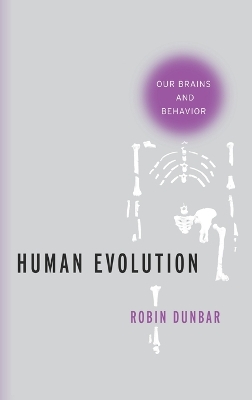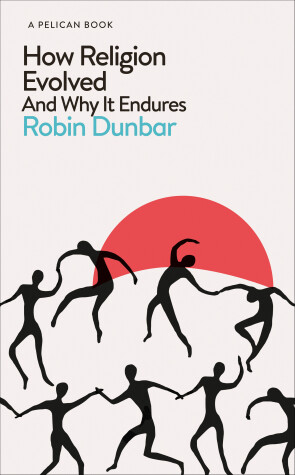Pelican Books
2 total works
reader, as subjects of mating, friendship, and community are discussed from an evolutionary psychology perspective. With a table of contents ranging from prehistoric times to modern days, Human Evolution focuses
on an aspect of evolution that has typically been overshadowed by the archaeological record: the biological, neurological, and genetic changes that occurred with each "transition" in the evolutionary narrative. Dunbar's interdisciplinary approach - inspired by his background as both an anthropologist and accomplished psychologist - brings the reader into all aspects of the evolutionary process, which he describes as the "jigsaw puzzle" of evolution that he and the reader will help solve. In
doing so, the book carefully maps out each stage of the evolutionary process, from anatomical changes such as bipedalism and increase in brain size, to cognitive and behavioral changes, such as the
ability to cook, laugh, and use language to form communities through religion and story-telling. Most importantly and interestingly, Dunbar hypothesizes the order in which these evolutionary changes occurred-conclusions that are reached with the "time budget model" theory that Dunbar himself coined. As definitive as the "stones and bones" are for the hard dates of archaeological evidence, this book explores far more complex psychological questions that require a degree of intellectual
speculation: What does it really mean to be human (as opposed to being an ape), and how did we come to be that way?
When did humans develop spiritual thought? What is religion's evolutionary purpose? And in our increasingly secular world, why has it endured?
Every society in the history of humanity has lived with religion. In How Religion Evolved, evolutionary psychologist Professor Robin Dunbar tracks its origins back to what he terms the 'mystical stance' - the aspect of human psychology that predisposes us to believe in a transcendent world, and which makes an encounter with the spiritual possible. As he explores world religions and their many derivatives, as well as religions of experience practised by hunter-gatherer societies since time immemorial, Dunbar argues that this instinct is not a peculiar human quirk, an aberration on our otherwise efficient evolutionary journey. Rather, religion confers an advantage: it can benefit our individual health and wellbeing, but, more importantly, it fosters social bonding at large scale, helping hold fractious societies together. Dunbar suggests these dimensions might provide the basis for an overarching theory for why and how humans are religious, and so help unify the myriad strands that currently populate this field.
Drawing on path-breaking research, clinical case studies and fieldwork from around the globe, as well as stories of charismatic cult leaders, mysterious sects and lost faiths, How Religion Evolved offers a fascinating and far-reaching analysis of this quintessentially human impulse - to believe.

